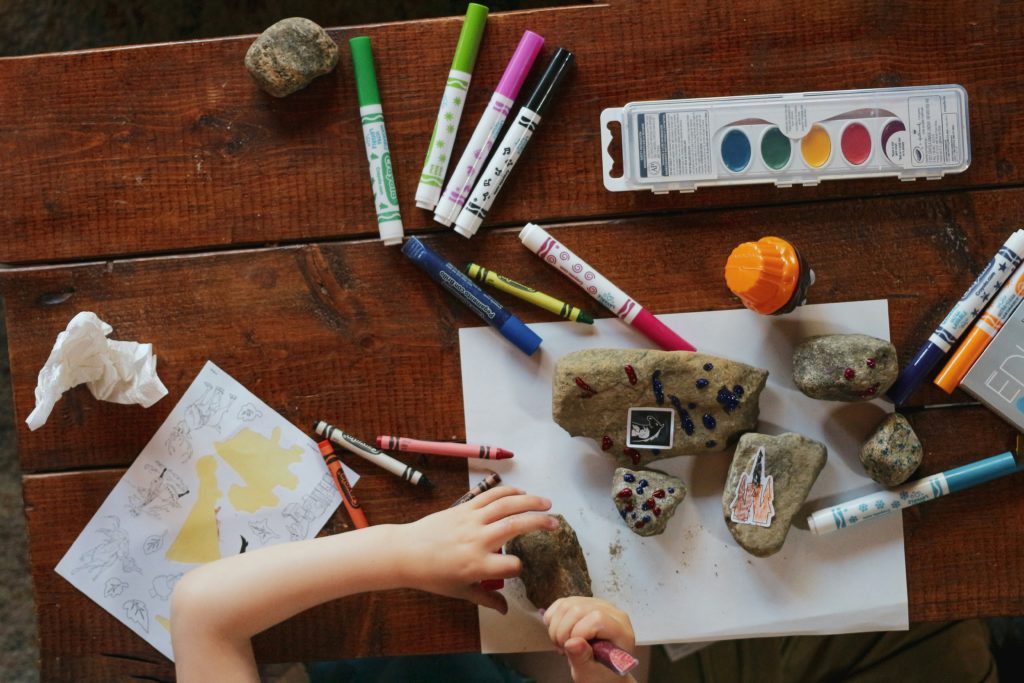Ever wondered why play is so important for children?
In this article, we explore why this is, particularly the science behind play and how it helps the young brain develop.
From brain development and emotional resilience to its essential role in healthy human growth, here is why play is so crucial and what you can do as parents to support and encourage this development.
a
The neurological foundations of play
Play is vital for brain development, quickly establishing complex neural networks in babies that form the basis for their future cognitive, emotional, and physical growth. Infants strengthen these connections by exploring their surroundings and interacting with sensory stimuli.
Reaching for colourful objects, listening to sounds, or tasting different textures, serves as a brain workout, reinforcing and creating new neural pathways. This early sensory play is vital as it challenges and expands the brain’s capabilities, making it more adaptable and strong.

a
Key learning through play
Understanding the importance of play in childhood development highlights its many benefits that extend into adulthood:
Sensory exploration
- Cognitive development: Grasping cause and effect through interactions with various sensory stimuli emphasises the importance of play in cognitive skill building.
- World understanding: Children learn how their actions impact their environment, a key insight provided by the importance of play.
Repetitive play
- Motor skill improvement: Activities such as stacking blocks or solving puzzles encourage refining motor skills.
- Cognitive skill enhancement: The importance of play is evident as it reinforces knowledge, encourages persistence, and supports skill development.
Role-playing and decision-making:
- Social skill enhancement: Through assuming various roles and navigating social scenarios, children learn the importance of play in developing complex social skills.
- Emotional intelligence growth: Play is crucial in building empathy, cooperation, and the ability to understand social cues.

Long-term impact:
- Mental health promotion: Play is crucial as it develops the psychological tools needed to manage stress and challenges later in life.
- Problem-solving enhancement: Adults who experienced diverse play as children typically show more flexible thinking, highlighting the lasting benefits of play.
a
Supporting and encouraging Play
Now we understand how important play if for development, here are effective ways to nurture play:
- Create diverse play environments: Set up spaces that spark curiosity and imagination, such as colourful playrooms filled with toys and outdoor areas for nature exploration.
- Allow unstructured play: Let children play freely without too much guidance from adults. Unstructured play ignites creativity, problem-solving skills, and independence.
- Promote social play: Social play is crucial for developing emotional and social skills. By playing with peers, children learn to cooperate, negotiate, and empathise. Organising playdates or participating in community playgroups are great ways to support this.

By taking these steps, we can reinforce the importance of play and ensure children have the necessary environments and opportunities to thrive.
The importance of play in developing a well-rounded, resilient individual cannot be overstated. Play is not only fundamental for cognitive and emotional growth but is also crucial in laying the groundwork for healthy mental and social capabilities later in life. As we’ve explored, play shapes the brain, influences lifelong well-being, and prevents negative developmental outcomes.
___________________________________________
At Schoolhouse Daycare, we enjoy learning, encouraging confidence and we love life! If you think your child would enjoy life at Schoolhouse, then please do not hesitate to arrange a visit.



